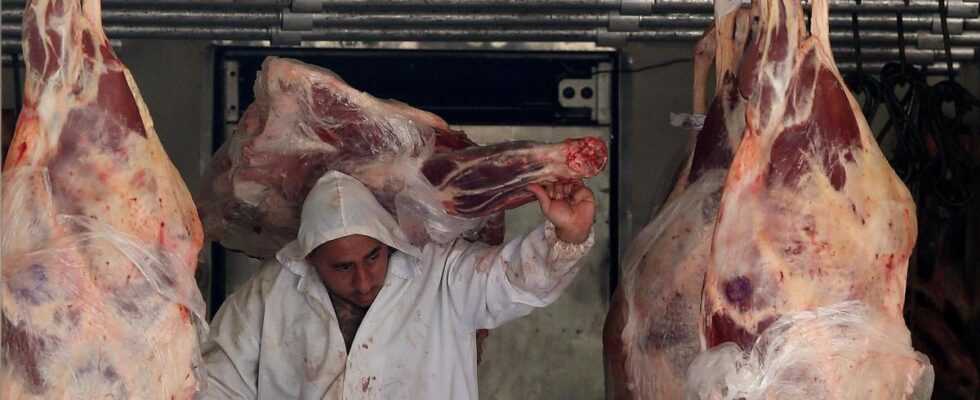Published
Beef from Brazil often comes from animals whose pastures rainforests have been paved. Consumers have no chance if they want to find out more about the origin. Now the dealers are reacting.
The origin of beef from Brazil can hardly be traced.
At the world’s largest producer, a third comes from questionable sources.
Rainforest had to give way for cattle.
Now supermarkets in Europe are throwing the meat out.
Cattle breeding is a billion dollar business in Brazil. But now the cattle trade could stall: six European supermarkets want to throw Brazilian beef out of their range.
These include the very big ones, such as the Dutch market leader Albert Heijn and the largest British chain Sainsbury’s. Also there are the Belgian chain Delhaize, Carrefour Belgium, Auchan from France and Lidl Netherlands.
Illegal rainforest clearing for grazing land
The reason for the boycott is the questionable origin of the meat. The stamp of origin is hardly worth anything, despite repeated assurances from the government and companies. The slaughterhouses only check where the cattle last stood. Whether it was previously on a pasture for which rainforest was illegally cleared cannot be found out, as the «Infosperber» writes with reference to Brazilian reporters and an NGO.
For example, the world’s largest meat producer, JBS, is said to obtain a third of its cattle from questionable sources. The Brazilian company has now promised to introduce a better control system in three years.
Swiss retailers hardly have any Brazilian beef left
Retailers and discounters from Switzerland have not been purchasing beef from Brazil for a number of years, as they assure on request. Coop still has canned meat from Brazil in its range, but no longer fresh meat, says a spokeswoman.
The Migros online shop also has beef with several indications of origin, including Brazil. “These are outdated data and will be corrected,” says a spokesman. The meat comes from Uruguay.
Also other countries with questionable control systems
However, caution is generally advised with imported beef from overseas. “It cannot be clearly traced anywhere else on which pastures the cattle were bred and whether rainforest was converted for this,” says a spokesman for WWF Switzerland on request.
Deforestation is not only happening in Brazil, but also, for example, in the Gran Chaco region, which extends over Argentina, Paraguay, Bolivia and Brazil. There, dry forests and thorn bush savannahs are threatened because of cattle breeding (see box).
According to WWF Switzerland, the Gran Chaco in South America has one of the highest deforestation rates in the world. In Paraguay and Argentina in particular, a lot is being cut down. The main reasons for this are the genetically modified soy production and large-scale cattle breeding. Most control efforts have so far been unsuccessful.
According to the WWF spokesman, meat cannot generally be consumed without hesitation from an environmental point of view. “Because animal husbandry is particularly resource-intensive and causes significantly more greenhouse gas emissions than the cultivation of plant-based foods,” he says.
As a member, you become part of the 20-minute community and benefit from great benefits and exclusive competitions every day!


